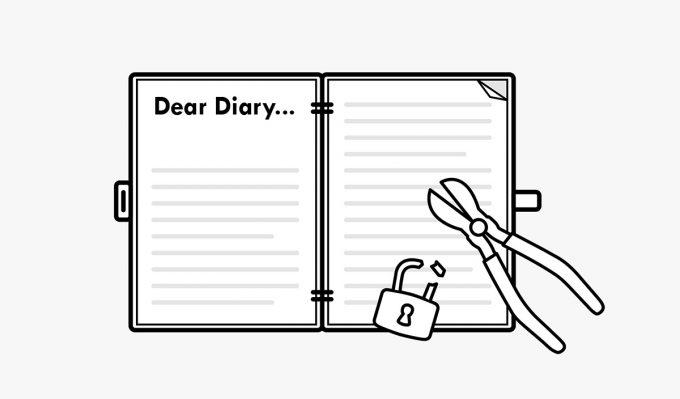We are increasingly online and continuously leaving data traces on the Internet. According to “Online Study 2017” by ARD and ZDF, more than 50 million people call information from the Internet every day in Germany alone. On average, every German is on the net for almost two and a half hours a day – 21 minutes longer than in 2016. This process started with the first networked PCs, became more intensive with the introduction of the smartphone and permeated with the “Internet of Things” and “Smart Homes.”
A development full of unforeseen dangers: Data protection hardly plays a role on the Internet, an unholy alliance of business and politics is flouting our civil rights. At the same time, multibillion-dollar companies have gradually trained their customers in terms of personal credit protection, and in the same breath specialize in the evaluation, exploitation, and marketing of data. The insight that data-collecting companies can gain in our private lives is illustrated by the following “digital daily routine”, including data traces from the Internet.
7:00 Morning Rituals
Checking their social feeds at breakfast: trackers record when a person is online for the first time a day. Just from these data tracks on the Internet can draw conclusions about the daily routine. On the political disposition, the surfing behavior is evident. Those who stop by NPR sympathizes most likely with the left, visitors of Fox News with the conservative camp.
Leaving the house: smart heating thermostats automatically reduce the temperature when someone leave their home. Time and regularity can provide clear indications as to whether someone is engaged in regular “at the office” employment.
8:30 Transportation Profiles
The ride to work: The smartphone and GPS allow for a detailed pattern of this movement. How does the user drive to work, how long does he stay there? In which locations does he do his shopping, where do his friends live? These and many other data points can be derived from motion profiles.
12:30 Financial Strength
Online shopping: Thanks to cookies, online shopping behavior reveals a great deal about the individual situation. If you choose cheap no-name goods instead of renowned brands, there seems to be a lack of money. Anyone who then plays several rounds of online poker on relevant websites every day is probably not considered particularly creditworthy due to these data traces on the Internet.
18:00 Health Level
Closing time: Food and snacks via online service directly in the house come is easy today. Whether it’s a supermarket or pizza service, such orders also allow meaningful lifestyle conclusions, such as how health consciously someone eats. Combined with data on pulse rate and sports activities transmitted by the smartwatch, this results in a detailed health profile.
20:00 Media Usage
Evening in front of the television: Which stations and which programs are watched, logged by Smart TVs. Fans of cheesy reality TV shows and series may run the risk of being considered less educated. This handy for media companies evaluation for the creation of user profiles in video portals such as Netflix, YouTube, and Amazon Prime Video.
23:00 Sex Life
Nightlife: Trackers, search engines, and device manufacturers have long been aware of sexual preferences – even how long people desire it (until the porn site is turned off).
Protect Your Privacy
Almost every device connected to the Internet is continually supplying user data. Those who are reluctant to share personal information about income, illness, political views and other secrets with profit-oriented companies must take action. Conventional data protection does not go far enough here, even if one occasionally switches on the protection of supposed anonymity on the Internet.
If you want to make sure that your privacy is protected on the Internet, you can use the eBlocker – the smart solution hides the IP address and blocks data-gathering trackers and advertisements – for all devices in your home network.
Important note
Please note that this article was originally published by the former eBlocker GmbH. The contents may be outdated. Today, eBlocker is free of charge and available as Open Source. Check out the new eBlocker Open Source Project.
